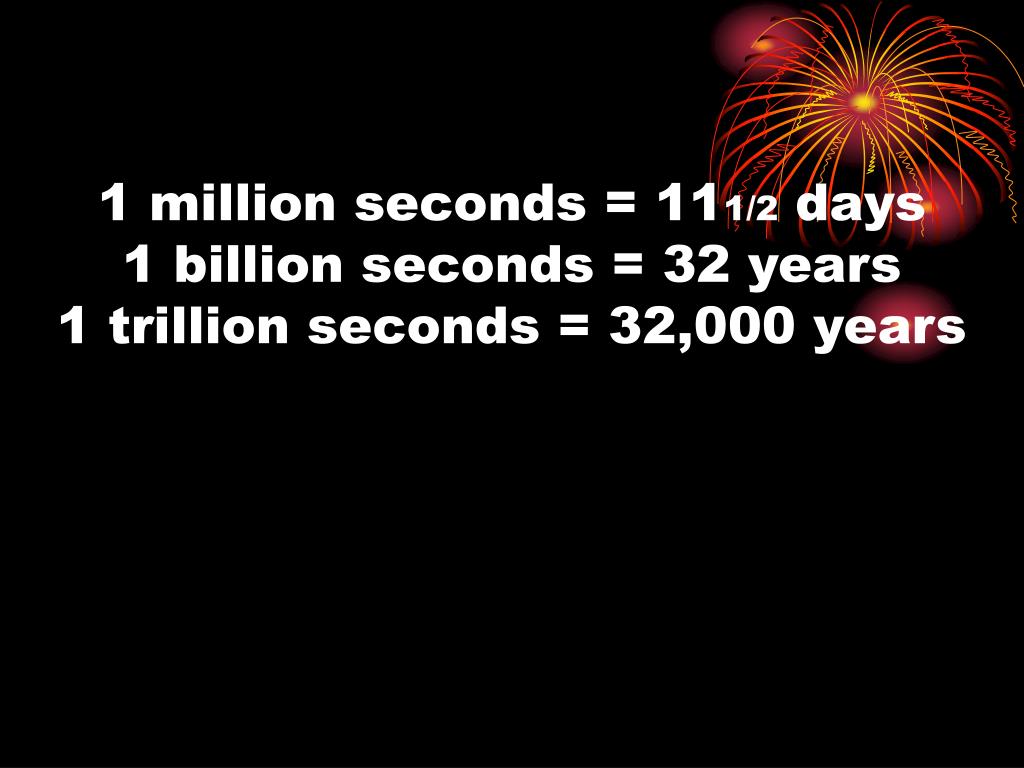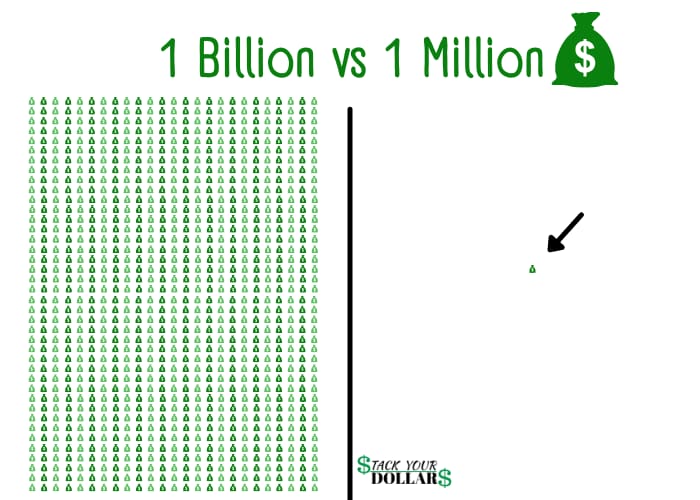Time is a fascinating concept, and when we break it down into smaller units, we often find ourselves surprised by the results. One intriguing question that arises is how many days are there in 1 million seconds? This article will explore this concept thoroughly, providing valuable insights into time conversions, the significance of seconds, and how we can relate this to our daily lives.
In the age of rapid information exchange, understanding time in various units has become increasingly important. It helps us manage our schedules, plan our activities, and even reflect on how quickly time passes. This article will not only reveal the conversion of 1 million seconds into days but will also delve into the implications of such measurements. From scientific perspectives to practical applications, we aim to cover it all.
By the end of this article, you will have a clear understanding of time conversion, particularly how to convert seconds into days. We will also provide you with useful tools and tips to help you grasp the concept of time better. So, let’s dive into the world of seconds and days!
Table of Contents
What is a Second?
A second is the base unit of time in the International System of Units (SI). It is defined as the duration of 9,192,631,770 periods of the radiation corresponding to the transition between two hyperfine levels of the ground state of the cesium-133 atom. In simpler terms, a second is a brief moment that forms the foundation of our understanding of time.
History of the Second
The concept of dividing time into smaller units dates back to ancient civilizations. The Egyptians used sundials, while the Babylonians subdivided the hour into 60 minutes and the minute into 60 seconds. The modern definition of a second was established in 1967 based on atomic timekeeping.
Converting Seconds to Days
To convert seconds to days, we need to understand the relationship between these two units of time. One day consists of 24 hours, and each hour has 60 minutes. Each minute contains 60 seconds. Therefore, the calculation goes as follows:
- 1 day = 24 hours
- 1 hour = 60 minutes
- 1 minute = 60 seconds
By multiplying these values together, we find:
1 day = 24 x 60 x 60 = 86,400 seconds
Now, to convert 1 million seconds into days, we perform the following calculation:
1,000,000 seconds ÷ 86,400 seconds/day = approximately 11.57 days
Thus, 1 million seconds is equivalent to about 11 days and 13 hours.
The Importance of Time Conversion
Understanding time conversion is essential in various fields, including science, healthcare, and even everyday life. Here are some reasons why:
- Scientific Research: Accurate time measurements are crucial in experiments and studies.
- Healthcare: Timing medications and treatments can significantly impact patient outcomes.
- Project Management: Knowing how to convert time helps in scheduling and meeting deadlines.
- Personal Life: Time management skills enhance productivity and work-life balance.
Practical Applications of Time Measurement
Time measurement has numerous practical applications in our daily lives. Here are some examples:
- Cooking: Recipes often require precise timing for the best results.
- Travel: Understanding time zones and durations can improve travel planning.
- Exercise: Monitoring workout durations can enhance fitness routines.
- Sleep: Tracking sleep patterns can lead to better health and well-being.
How Many Seconds are in a Day?
As mentioned earlier, one day consists of 86,400 seconds. This knowledge is fundamental for anyone looking to manage their time effectively. Additionally, grasping this concept can help individuals appreciate how fleeting time can be, encouraging them to make the most of each day.
Exercises and Examples
Here are a few exercises to reinforce your understanding of converting seconds to days:
- Example 1: Convert 500,000 seconds into days.
- Example 2: How many seconds are there in a week?
- Example 3: If you sleep for 8 hours a day, how many seconds do you spend sleeping in a month?
Frequently Asked Questions
Here are some common questions related to time conversion:
- Q: How do I convert minutes to seconds?
A: Multiply the number of minutes by 60. - Q: Can I use a calculator for time conversions?
A: Yes, there are many online calculators available. - Q: Why is understanding time important?
A: It aids in effective planning and productivity.
Conclusion
In conclusion, understanding how to convert 1 million seconds into days is a valuable skill that enhances our perception of time. With approximately 11.57 days in 1 million seconds, we gain insight into how quickly time flies. By mastering time conversion, we can better manage our schedules, improve our productivity, and ultimately lead more fulfilling lives.
We encourage you to share your thoughts in the comments below, and don't forget to explore more articles on our site to deepen your understanding of time and other fascinating topics!
Article Recommendations



ncG1vNJzZmibkafBprjMmqmknaSeu6h6zqueaJqVlsK1xYysnJyqlanAcH2MpqClpJmku26%2FxJymp5yjYravecOasKxmmKm6rQ%3D%3D